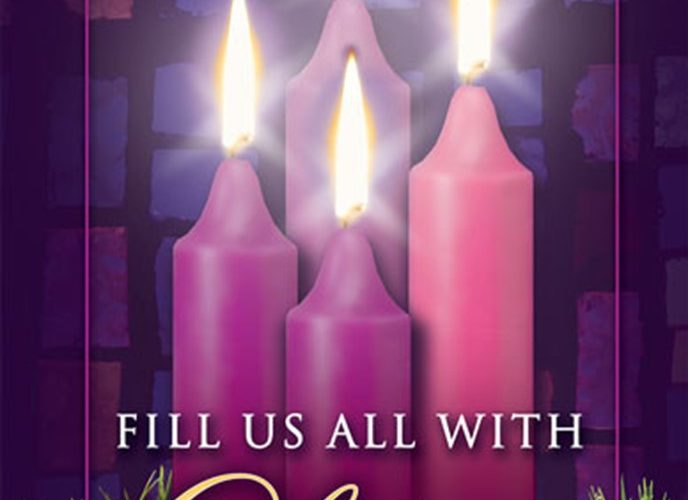Rev Tania writes:
The last week of Advent returns us to the beginning of John’s story, as Mary, pregnant with Jesus, visits Elizabeth, and John leaps within his mother’s womb. Mary’s song is, of course, one of the highlights of the birth narratives, and carries a powerful justice-proclaiming message. In the waiting of Advent, it can be tempting to become passive observers of God’s activity, but the Scriptures call us instead to be active participants in God’s salvation.
There’s a temptation contained in this week’s readings to view salvation as God’s work of rescue for which we do nothing but receive. Of course, on one level, we are nothing more than recipients of God’s grace. But, the Gospel does not portray God as a super hero who swoops into save us while we just look on in amazement. In the Micah reading, a shepherd is promised for God’s people. This is God’s work. But, that shepherd comes from an insignificant town, which means that the work of this shepherd will require response from the people to whom he comes. In the Hebrews reading, Jesus is revealed as the one who obeys and sacrifices in order to save us, but this is placed in the context of a discourse around covenant and our response to the work of Christ which makes us holy.
Finally, in the Gospel, Mary’s visit to Elizabeth is testimony to the divine initiative in both the birth of John and of Jesus, but both mothers are participants in the process of incarnation, and Mary’s song reveals that, although God is the Saviour, the justice that God brings happens as it takes hold of the lives of people.
The challenge this week, then, is to recognise God’s work without becoming mere apathetic spectators of God’s salvation. We are called to be participants with God in God’s saving work, starting with our own lives as we respond in faith and repentance to the sacrifice of Christ. Then, once we have allowed God’s Reign to be conceived in us (like Mary), we become participants in the process of salvation, seeking through our attitudes and actions to bring salvation and justice to others in whatever way we can. So, God’s Reign comes to us, and then through us to others. Christ sacrifices himself for us, and then we sacrifice ourselves for others. God is born within us, and then we become midwives helping to birth God in others and in our world.
May our worship inspire and empower us to be both recipients of God’s salvation and little incarnations who carry salvation to our world. Lord, may your love fill us! Merry Christmas.
In prayer, Rev Tania.

